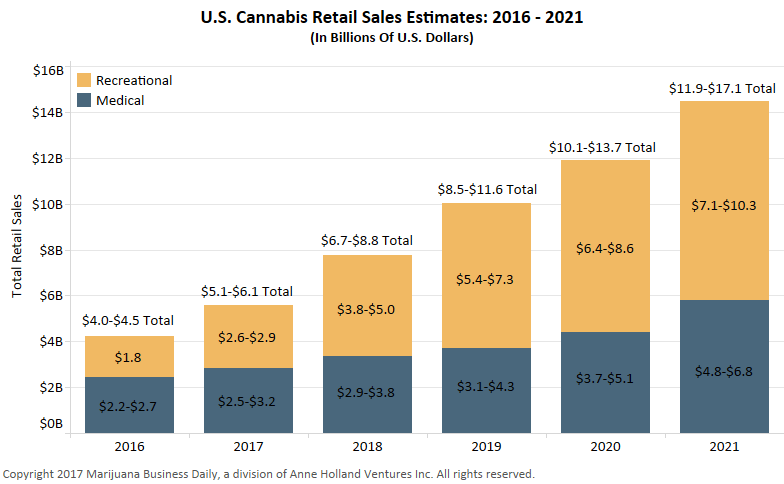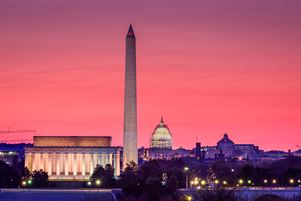By Bart Schaneman, Omar Sacirbey and John Schroyer
Washington state signs off on an organic marijuana certification program, Philadelphia’s mayor says state-run liquor stores should handle recreational sales, and Minnesota’s two medical cannabis businesses bleed red ink.
Here’s a closer look at some notable developments in the marijuana industry over the past week.
Organic cannabis
With Washington state becoming what is believed to be the first state in the nation to offer an organic certification for cannabis, marijuana joins many other agricultural products with the same designation.
The certification could help marijuana business owners in a few ways:
- It can provide an opportunity to add another product to their portfolio, one that can command a premium.
- It can normalize the plant among consumers familiar with the certification.
- It can provide consumers with an opportunity to choose between conventionally grown cannabis and MJ cultivated free of chemicals.
As for the business opportunities for a cannabis firm, Gelt pointed to raspberry farmers. He said Driscoll’s receives a 15%-20% premium for its organic raspberries.
“(There are) any number of products where you have certified organic products that derive a premium,” he added.
A producer may also consider cultivating both organic and conventionally grown cannabis.
“If I’m a producer in Washington state I would go after it,” Gelt said. “If you’re the first one to get certified, you can run around and say, ‘I’m the first certified organic cannabis operation in the world.’”
But temper your expectations. Even if you’re receiving a premium for organic, the customer base remains limited.
“There’s a growing segment of consumers who want organic,” Gelt said. “But at the end of the day it’s still a niche. There’s a reason why there are more Burger King commercials than Whole Foods commercials. People want ‘taste good, cheap.’”
State-owned marijuana stores?
The good news for cannabis entrepreneurs is that Philadelphia Mayor Jim Kenney wants to see Pennsylvania legalize recreational marijuana. The bad news: He thinks it should be sold through Pennsylvania’s state-run liquor stores.
Kenney told a local radio station that when he was growing up, the easiest place for an underage drinker to buy alcohol was at bars. Bartenders would look the other way, while state-run liquor stores strictly obeyed the rules.
Michael Bronstein, a longtime legalization activist with the political media firm Bronstein & Weaver in Philadelphia, believes Pennsylvania will legalize recreational marijuana – but, when it does, the state will let private retailers handle distribution.
“Jim Kenny’s talk about legalization has started a responsible discussion around cannabis legalization,” Bronstein said.
But he reckons the odds are slim that state-run liquor stores will get the nod for cannabis sales.
“It’s unlikely only because the pressure that will come from dispensary organizations and the existing medical marijuana community will be too much to bare,” Bronstein said. “Anyone with an interest in owning a medical marijuana dispensary would also more than likely push to convert their licenses to a recreational model.”
That said, state liquor store trade associations and employee unions like the idea of selling cannabis through state-run stores, and will probably push back against cannabis entrepreneurs.
Marijuana entrepreneurs, for their part, could receive support from an unlikely ally: Pennsylvania Republicans. While there are some in the state GOP that oppose legalization, those that support legalization are adamantly anti-union, don’t like state-run businesses, and don’t want another regulated product under union and state control.
“Republicans would not be in favor of the liquor system,” Bronstein said.
Minnesota bleeding
The news this week that Minnesota’s two MMJ producers have lost a combined $11 million over the past two years didn’t surprise Nic Easley, CEO of Denver-based 3C Consulting.
Easley pointed to the tiny patient count in the state – just over 5,000 – and the fact the two firms are prohibited from selling smokable flower or edibles.
He also said it was inevitable the companies – LeafLine Labs and Minnesota Medical Solutions (also known as MinnMed) – would have to confront a short-term squeeze until the market expands enough to become profitable.
“I think those two companies came in thinking, ‘There are only going to be two companies; it’s going to be very lucrative,'” Easley said.
“Having a limited license in a limited-license state is extremely valuable in the long term, but in the short term,” Easley said, the two companies may not be “raising enough capital to understand what that bleed rate is.”
It is possible, however, the two companies have enough resources to outlast a multiyear slow start to the market, since both are very well-capitalized.
“Just like a short squeeze on a stock, you have to have the capital to withstand that squeeze, and we now see that squeeze calculated at $11 million,” Easley said. “Those two companies need to take a hard look at the facts and the numbers and rerun their entire program to figure out how they can stay in until the market does get better.”
Bart Schaneman can be reached at barts@mjbizdaily.com
Omar Sacirbey can be reached at omars@mjbizdaily.com
John Schroyer can be reached at johns@mjbizdaily.com




